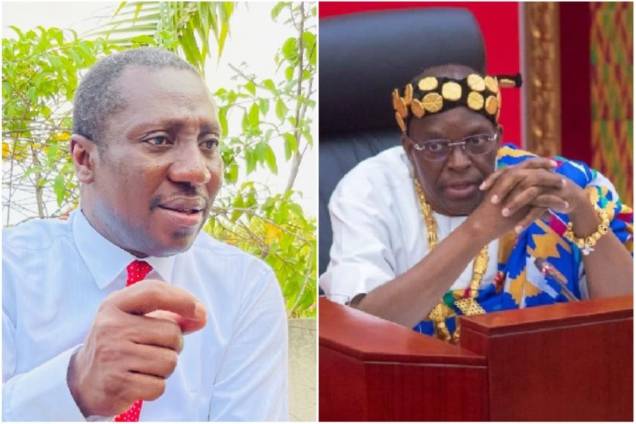The Majority Caucus in Ghana’s Parliament has formally requested the Speaker, Alban Bagbin, to recall the House for an emergency sitting before the end of November to address urgent government business.
In a memo, Alexander Afenyo-Markin, the Majority Leader, stressed the importance of this session, citing the need to tackle high-priority matters critical to the government’s operations.
“I must emphasize, respectfully, that these are high-priority businesses for the government,†Afenyo-Markin noted. He further pointed out that the Sixth Meeting of the Fourth Session of Parliament, which began on November 7, 2024, adjourned without addressing key government issues.
The request comes amidst heightened political activity as Ghana gears up for general elections in December. Afenyo-Markin emphasized that reconvening Parliament would signal the House’s commitment to its constitutional duties, even during the electoral season, and foster bipartisan cooperation in the national interest.
Background: Seat Vacancy Controversy
This development follows a recent Supreme Court ruling declaring the Speaker’s decision to vacate four parliamentary seats as unconstitutional. On October 17, 2024, Speaker Bagbin declared the seats of four Members of Parliament vacant after they announced their intentions to contest the December elections as independent candidates.
The affected MPs included Peter Yaw Kwakye Ackah (NDC, Amenfi Central), Andrew Amoako Asiamah (Fomena, independent), Kojo Asante (NPP, Suhum), and Cynthia Morrison (NPP, Agona West). The declaration significantly shifted the dynamics of Ghana’s hung parliament, potentially favoring the opposition National Democratic Congress (NDC).
Following the Speaker’s announcement, Afenyo-Markin filed an injunction application at the Supreme Court, leading to a stay of execution on the declaration. However, the Speaker filed a subsequent application challenging the Court’s jurisdiction, which was dismissed.
The controversy has sparked intense debate, with some analysts warning that such legal and political disputes could disrupt governance and stability, particularly during the electoral period.
Call for Bipartisan Action
As the Majority presses for a recall of Parliament, the need for bipartisan cooperation has become increasingly urgent. Observers argue that resolving pending government business, including budgetary and legislative matters, is critical to ensuring smooth operations and public confidence during the elections.
This unfolding situation highlights the complexities of balancing governance with the heightened political tensions of an election year.
Source: MyJoyOnline.com




No comments yet
Be the first to share your thoughts!